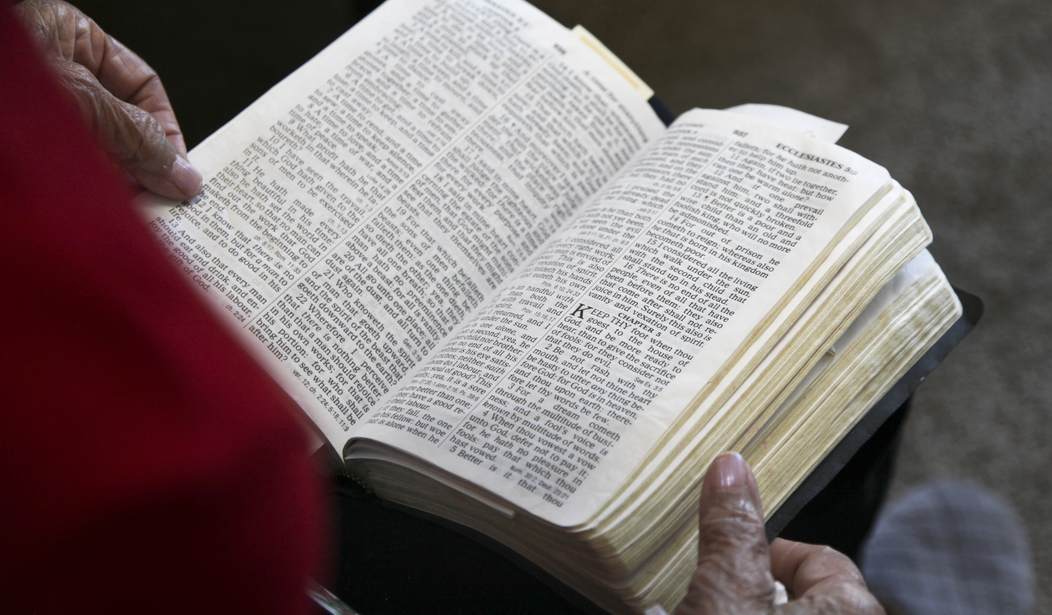“A person’s moral sense of right and wrong, viewed as acting as a guide to one’s behavior” — the dictionary definition of “conscience.”
Whenever I make the common-sense argument that people need to hold themselves accountable to a morality-giving, morality-judging God — specifically, the God of the Bible, and more specifically, the God of the Ten Commandments — a flood of incredulous, frequently mocking, responses immediately appears in the comments section and on atheist and left-wing websites.
The gist of the God-is-morally-unnecessary argument is this:
“Unlike Prager and other religious people, I don’t need God to tell me murder is wrong. My conscience tells me that. I don’t need to answer to any god; I answer to my conscience.”
This response is held most widely among the best educated — i.e., the people most likely to reject the existence of God and the necessity of both God and the Bible for either a moral order or for attaining wisdom (without which a moral order is impossible).
That the great majority of secular people believe the conscience is all that people need to act morally is one more example of the low intellectual level secularism has produced. Other examples include “men give birth,” “sex is nonbinary,” “Western civilization is no better than any other civilization,” “color-blind is racist” and “people are basically good” (the truly foolish doctrine that people must affirm if they rely on the conscience to produce moral behavior).
But no secular idiocy is greater than the belief that the conscience can replace God, the Bible and Judeo-Christian values as a producer of moral behavior.
Related: Don’t Be Fooled: The Left Doesn’t Care About Morals
The reality is that most people’s consciences are, to say the least, easily manipulated. It is hard to imagine any aspect of human life more malleable than the conscience. It is as malleable as putty. And as sturdy. In fact, the malleability of the conscience alone makes the case for God- and Bible-based morality.
If the conscience were morally effective, what evildoer or supporter of evil would sleep well at night? Yet, people who commit evil, whether for personal reasons (such as murderers, thieves and rapists) or for ideological reasons (such as Nazis, communists and Islamist terrorists) sleep as soundly as anyone else. Raskolnikov, the murderer-protagonist in Dostoevsky’s “Crime and Punishment,” is an exception — but only because he is a fictional character.
Virtually every individual who has committed or supported evil has had a clear conscience. That’s why “I answer to my conscience” is both intellectually and morally meaningless. Every monster and every moral fool “answers” to his conscience. And his conscience tells him he is just fine — especially today, in the age of self-esteem.
It is far truer to say that one’s feelings and behavior produce the conscience than the conscience produces one’s feelings and behavior. Overwhelmingly, people do either what they want to do and then tell their conscience that what they did was right, or their feelings decide what is right and they simply label those feelings “conscience.”
Here’s another way of proving that the conscience is largely useless in directing right behavior: People on the opposite side of every moral issue are equally convinced they are listening to their conscience. You cannot name an issue wherein this is not the case. This is true for extreme examples such as World War II German soldiers and their Nazi leaders — and the Allied troops and leaders who fought the Nazis; the Western spies who gave the secrets to the atom bomb to Josef Stalin, the second greatest mass murderer in history (Mao was first) — and the anti-communists who opposed Stalin; and the Japanese soldiers who used Korean “comfort women” (women whom they regularly gang raped) and who performed hideous medical experiments on Chinese civilians — and the Allied troops and leaders who fought the Japanese in World War II. The list is endless.
But you don’t need such extreme examples. Americans who believe the human fetus has a right to live (unless its death is necessary to save the life of the mother — something that almost never happens thanks to modern medicine) and those who do not believe the human fetus has any right to live (unless the mother wants it to) are both equally convinced their consciences dictate their views on abortion. Americans who believe it is moral to surgically remove the healthy breasts of any girl or young woman who says she is a boy have a completely clear conscience, as do those who think this act constitutes immoral mutilation.
Given the moral unreliability of the conscience, the word essentially means what one feels is right or wrong. In other words, in most people conscience is a euphemism for feelings, another word for the “heart.”
So then, given the general uselessness of the “conscience,” how is one to be morally guided?
History argues for a combination of God (the God of the Bible) and reason. God without reason often results in fanaticism, and the evil to which that usually leads. And reason without God ends with moral chaos as embodied in the university. Indeed, irony of ironies, reason without God ends with the death of reason. Unless, of course, you believe “men give birth” is rational.









Join the conversation as a VIP Member